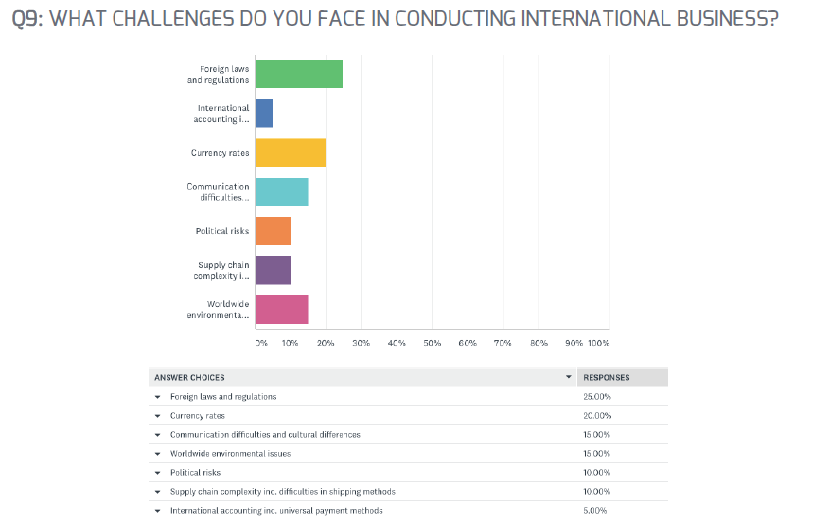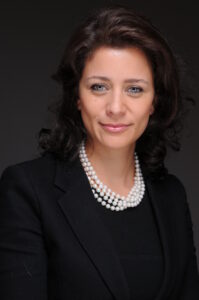(Wednesday, 6 June 2018)
Study reveals the needs and aspirations of the Middle Eastern businessperson
By Micha Emmett, CS Global Partners
For the average businessperson, conducting international business can be a complex and challenging task. There are foreign laws and policies to explore, red tape to overcome, and this is over and above the inherent cultural and language barriers. Identifying the common challenges even before combatting them is a test in itself.
A study released by CS Global Partners, a leading consultancy firm specialising in citizenship and residence, sheds light on some of the challenges the typical businessperson may face when it comes to conducting business abroad. The respondents comprised a diverse mix of industry backgrounds, including manufacturing, oil, gas and petrochemicals, education, banking and finance, retail and real estate.
Despite their varied professional environments, six out of ten respondents from the Middle East said they travelled abroad for the purposes of business at least every three months, highlighting the importance of mobility and having the freedom to travel with efficiency.
When asked about the biggest challenges of running a business in the region, an overwhelming 41% identified the local economy as a primary concern. 75% of respondents confirmed they felt limited by the business opportunities in their region at least some of the time, demonstrating a need to expand into international markets.
When asked to specify some of the most notable challenges of operating a business abroad, 25% of respondents noted that foreign laws and regulations generated difficulties, while 20% listed currency rates as an additional complication. The survey was also looked at the drivers for international business; what compels a businessperson to steer their business outside their local market? 26% of respondents said expansion opportunities were a propelling factor, while another 21% were motivated by the prospect of diversifying their business.
The picture that the survey paints is one of Middle Eastern businesspersons eager to see their businesses grow and branch out, yet stalled at home both on a local and regional level. At the same time, they face complications when attempting to do business abroad, notwithstanding their preparedness to travel.
The challenges to doing business abroad emphasised by the results of the survey is not a foreign story to the average client at CS Global Partners. Experts in the global citizenship industry, CS Global Partners deals on a daily basis with businesspeople who are faced with challenges to their mobility. They may need to travel to Hong Kong for a last minute meeting, but cannot be issued with a visa in time due to the limitations of their current citizenship.
Second citizenship is one way to increase mobility and do business more freely. Citizenship by investment is the process whereby a government grants citizenship to an individual or family in return for an economic contribution to that country. There are a number of countries worldwide who offer citizenship by investment programmes, inviting foreign direct investment and granting citizenship provided an applicant fulfils all the requirements. For the government, the incentive is financial, while for the investor, citizenship can mean greater freedom, empowerment, and independence.
An investment in second citizenship can help diversify the future. With second citizenship, Middle Eastern businesspersons can expand to new markets and establish themselves in jurisdictions willing to incentivise investment and enterprise. They can also obtain better travel rights, making it easier to cross borders and establish relationships with foreigners. Ultimately, they can also create a safe space in which to fall back should economic or social turbulence make it impossible for them to pursue their business goals at home. And, for the occupied businessman, citizenship by investment need not be a hassle.
Countries like Dominica and St Kitts and Nevis, which have been operating citizenship by investment regimes for decades, have refined their systems to enable aspiring citizens to apply without having to reside, live, or travel there. They have implemented sophisticated systems to keep application processes streamlined, while at the same time adhering to strict vetting procedures. For an additional fee, St Kitts and Nevis operates a premium Accelerated Application Process delivering citizenship to successful applicants in 60 days, and this year was rated the world’s best programme for due diligence.
The challenges for the Middle Eastern businessperson, and indeed businesspeople around the world trying to break into new markets, are numerous. Investing in second citizenship may make the difference between achieving and failing to meet business goals, or at the very least, will mean you can get to your urgent business meeting in Hong Kong on time.
Micha is the CEO of CS Global Partners, a leading international advisory firm, and a dual qualified attorney.
Micha travels extensively to provide consultancy services to private clients and governments in Europe and the Caribbean. Micha also operates in Africa, the Middle East, and Asia, where she has been a speaker at a wide array of international events focusing on citizenship by investment (CBI), global citizenship, and foreign direct investment.






